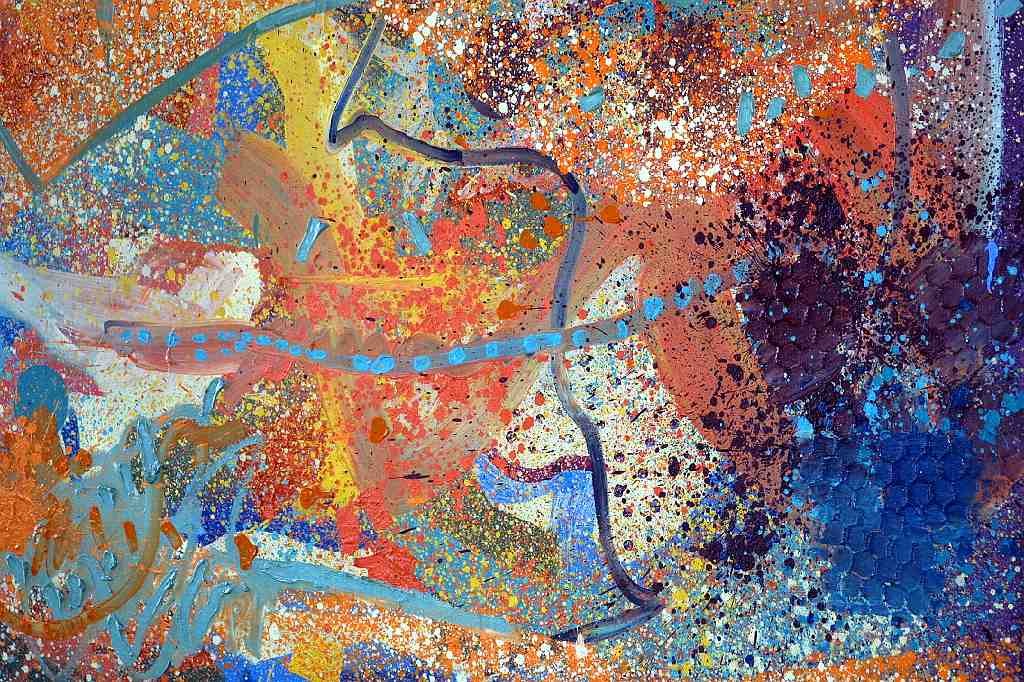“The wrong kiiiiid died!” comes out of my mouth for good measure, again with a thick southern accent.
Instructions come soon enough from a pretty assistant director, who walks me to “makeup and hair,” where I gotta listen to endless chatter from the makeup lady, who has her own set of problems. Everyone has problems. Finally, I’m placed on a set for the first scene, sitting next to a black guy from “Saturday Night Live,” quietly delivering my little speech under my breath that I’m about to shoot with John C. Reilly. The director, Jake Kasdan, talks about the scene before we shoot. John C. Reilly and I run through the lines. We both know the words, won’t be a problem with the words; well-written, too. Both of us take to the scene immediately. John and I talk a little, getting to know each other type stuff, “How old are your kids?” “Where do they go to school?” — nothing intimate, a few “macho” comments passed between us to show we’re not gay, just to make that clear, since we have to hug in the scene. Men do what they have to do to maintain boundaries, to show they’re “real men.” The whole thing is a bore. I had a gay mother once, whom I loved very much, so we don’t have to go through that nonsense, but John doesn’t know anything about my mother. No, mother won’t be brought up in this setting.
John and I have no difficulty along those lines anyway, both of us totally focused on the work. He’s a perfectionist, whereas I come well-prepared but will accept any result that feels right — more lenient, perhaps, maybe because I’m older. Age has its advantages, can cut myself slack, rather than pushing all the time — more comfortable with myself than I was when I was young. John is riding high right now, so he wants his work to be great. He’s a talented man, doesn’t have to worry. God bless him. I like him. He’s a good man. When he sees my sunburned bald spot, he calls for an umbrella to cover my head. How nice. How kind of him.
The sun is coming out fully all of a sudden, so I get rid of my thermal shirt. Don’t want to be hot, but my microphone is connected to the damned shirt, so I mess the whole thing up, the embarrassment of the moment smoothed over by the sound technician, who allows me to put my outer flannels on with the reattached microphone, but not before I’ve exposed my spreading waistline that I try to suck in; hope John and Jake don’t see my little belly, a fat movie star, not too impressive. With the bald spot already noticeable, my little fat belly would be the end. Then again, what the heck; I’m too old to be embarrassed by stuff like that.
John C. Reilly is the star, so they shoot him first. I’ll be last, when I’m drained of energy. That’s the way it goes when you’re not the star. I don’t mind, don’t hold it against him, trying to cooperate in every way possible. Playing his father is enough glory for me. If they ask me to pick up cues, I do it. If John wants the scene to be more emotional, I show a little feeling. I’m flexible. The sun is hot, but tolerable. We begin John’s half of the scene, run through it without a hitch. John seems unhappy. I’m cautious not to interrupt his train of thought between takes. He’s a perfectionist. I’m simply happy to be acting to the best of my ability. The best of my ability seems enough. Why ask for more? John is pushing for something better. He’s a good actor, so I go along with him. More personal; he wants more personal.
Meanwhile, the sun is draining my energy. My scalp hurts by now; the makeup lady spraying sunblock onto my bald spot. I’m definitely getting weaker. Hours of shooting, all of it with the camera on John C. Reilly, none of it on me; I don’t mind; energy still strong enough to maintain a solid front. I’m more than willing and refuse to show signs of weakness in between takes. John is pushing by now. Again, “coming to tears” seems the issue, complaining that we should be shooting the scene on a sound stage without helicopters and passing motor boats interfering with sound quality. The seagulls make too much noise. Stopping every minute for passing boats, John seems upset. The crew’s movement bothers him; interruptions, one after another, stopping, starting from the top of the scene. Our star finally does come to tears, after pushing over and over again for a deeper emotional connection. I’m off camera, so I’m not pushing, simply trying my best. That’s all I care about, old and happy just being here and working with this guy. He’s nice to me, very considerate, the sun hotter than hell on my burned bald spot; energy seeping out of me like blazes.
~~~


